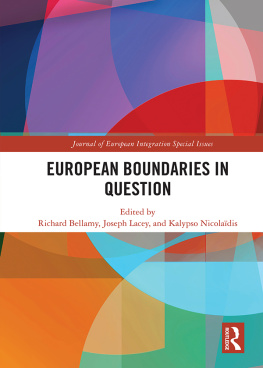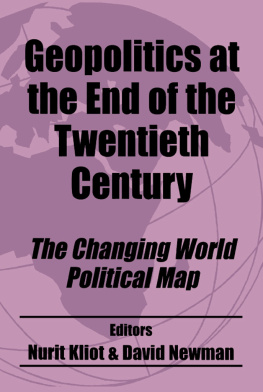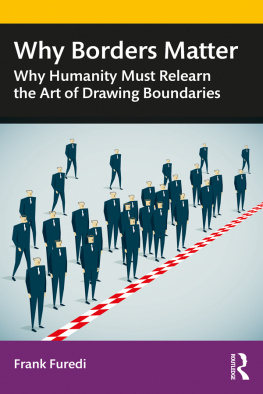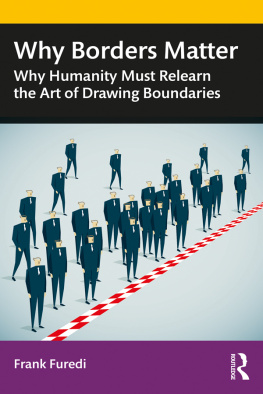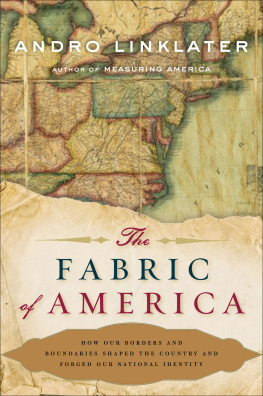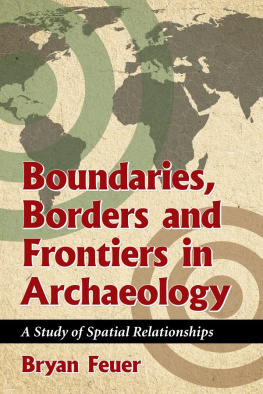
Deepening Divides
Anthropology, Culture and Society
Series Editors:
Jamie Cross, University of Edinburgh,
Christina Garsten, Stockholm University
and
Joshua O. Reno, Binghamton University
Recent titles:
The Limits to Citizen Power:
Participatory Democracy and the
Entanglements of the State
VICTOR ALBERT
The Heritage Machine:
Fetishism and Domination
in Maragateria, Spain
PABLO ALONSO GONZLEZ
Becoming Arab in London:
Performativity and the Undoing of Identity
RAMY M. K. ALY
Anthropologies of Value
EDITED BY LUIS FERNANDO ANGOSTO-FERRANDEZ
AND GEIR HENNING
PRESTERUDSTUEN
Vicious Games:
Capitalism and Gambling
REBECCA CASSIDY
Ethnicity and Nationalism:
Anthropological Perspectives
Third Edition
THOMAS HYLLAND ERIKSEN
Fredrik Barth:
An Intellectual Biography
THOMAS HYLLAND ERIKSEN
Small Places, Large Issues:
An Introduction to Social
and Cultural Anthropology
Fourth Edition
THOMAS HYLLAND ERIKSEN
What is Anthropology?
Second Edition
THOMAS HYLLAND ERIKSEN
At the Heart of the State:
The Moral World of Institutions
DIDIER FASSIN, ET AL.
Anthropology and Development:
Challenges for the Twenty-first Century
KATY GARDNER AND DAVID LEWIS
Children of the Welfare State:
Civilising Practices in Schools,
Childcare and Families
LAURA GILLIAM AND EVA GULLV
Faith and Charity:
Religion and Humanitarian Assistance
in West Africa
EDITED BY MARIE NATHALIE LEBLANC
AND LOUIS AUDET GOSSELIN
Private Oceans:
The Enclosure and Marketisation
of the Seas
FIONA MCCORMACK
The Rise of Nerd Politics:
Digital Activism and Political Change
JOHN POSTILL
Base Encounters:
The US Armed Forces in South Korea
ELISABETH SCHOBER
Ground Down by Growth:
Tribe, Caste, Class and Inequality in
Twenty-First-Century India
ALPA SHAH, JENS LERCHE, ET AL
When Protest Becomes Crime:
Politics and Law in Liberal Democracies
CAROLIJN TERWINDT
Race and Ethnicity in Latin America
Second Edition
PETER WADE
Deepening Divides
How Territorial Borders and
Social Boundaries Delineate Our World
Edited by Didier Fassin
First published 2020 by Pluto Press
345 Archway Road, London N6 5AA
www.plutobooks.com
Copyright Didier Fassin 2020
The right of the individual contributors to be identified as the authors of this work has been asserted by them in accordance with the Copyright, Designs and Patents Act 1988.
British Library Cataloguing in Publication Data
A catalogue record for this book is available from the British Library
ISBN 978 0 7453 4042 5 Hardback
ISBN 978 0 7453 4043 2 Paperback
ISBN 978 1 7868 0562 1 PDF eBook
ISBN 978 1 7868 0564 5 Kindle eBook
ISBN 978 1 7868 0563 8 EPUB eBook
This book is printed on paper suitable for recycling and made from fully managed and sustained forest sources. Logging, pulping and manufacturing processes are expected to conform to the environmental standards of the country of origin.
Typeset by Stanford DTP Services, Northampton, England
Simultaneously printed in the United Kingdom and United States of America
Contents
Didier Fassin
Kristin Surak
Rhacel Parreas
Aye Parla
Mayanthi Fernando
Mae Ngai
Sherally Munshi
Michael Hanchard
Tugba Basaran
Linda Bosniak
Ilana Feldman
Paul Nugent
1
Introduction
Connecting Borders and Boundaries
Didier Fassin
We were expelled from Germany because we were Jews. But having hardly crossed the French borderline, we were changed into boches.
Hannah Arendt, We Refugees
On January 27, 2017, one of the first decisions made by Donald Trump as the newly inaugurated president of the United States was to issue Executive Order 13769 to protect the American people from terrorist attacks by foreign nationals admitted to the United States.1 This temporarily banned travel and immigration from seven countries: Syria, Iran, Iraq, Yemen, Libya, Somalia, and Sudan. Taking effect immediately, it generated chaos at airports due to refusals of entry, and it also created a surge of protests. Conspicuously, no citizen from these countries had been involved or was suspected of being involved in any fatal attack in the United States, while none of the countries whose citizens had actually carried out deadly attacks on US territorySaudi Arabia, Egypt, United Arab Emirates, Pakistan, Russia, and Kyrgyzstanwas affected. Because the executive order targeted exclusively Muslim-majority countries without specific security justification, it was referred to as a Muslim ban. The White House denied any discriminatory intention, but according to his personal lawyer the president had asked how to legally implement the ban he had explicitly designated as such. This affirmation and the various public statements made earlier by him during the presidential campaign were sufficient evidence for federal judges to consider the executive order unconstitutional, even after two modifications in its formulation, before the Supreme Court eventually upheld it. The selectivity of the executive order was nowhere more visible than in the case of refugees. Not only did the number of those admitted for protection dramatically decline, but the proportion of Muslims among them spectacularly decreased by six times compared to what it was before the executive order. However, the administrations discriminatory practices against immigrants were not only based on their religion. They also concerned their ethnicity, as was clear in the repeated singling out of Mexicans and more generally Latinos by the president, who iteratively described them as drug dealers, criminals, terrorists, and rapists, although he occasionally conceded that some are good people. From this perspective, the Mexican border wall, the construction of which has been announced on numerous occasions, has been viewed as a Latino wall as much as the ban is a Muslim ban. In both cases, the enforcement of border control is not the same for everyone. It more or less implicitly outlines boundaries based on faith or origin.
On October 31, 2017, the day before he announced the end of a state of emergency, Emmanuel Macron enacted a law strengthening internal security and the fight against terrorism.2 The state of emergency declared two years earlier, after the deadly attacks carried out in Paris, had been prolonged several times over the following twenty-four months. It gave the police additional powers in terms of identity checks, search warrants, and house arrests, at the same time as it allowed the state to prohibit demonstrations and close places of worship, while judicial control was henceforth limited in all these cases. Most of the measures, which had been used in practice much less to fight terrorism than to tackle ordinary delinquency and illegal immigration, were incorporated in the new law the day before the state of emergency was ended. The exception thus became the rule, to quote Walter Benjamins famous phrase. The most remarkable, albeit little noticed, legal change was the extended opportunities of so-called border checks and searches. Indeed, after the 1993 creation of the Schengen Area, such police interventions had been authorized as far as 20 kilometers from the national border as well as at ports, airports, and international train stations. But the new legislation broadened the 20 kilometer perimeter of border checks and searches by applying it to 118 ports, airports, and stations. As a result, from then on it included all major urban areas of the country, corresponding to two-thirds of the population and the quasi-totality of people of immigrant origin, whether foreigners or French nationals. It was well known that checks and searches were mostly conducted on the basis of the physical appearance of individuals, focusing on Arab and black men, but in the absence of credible suspicion of involvement in a crime having been or on the verge of being committed, legal redress could be filed and several court decisions had condemned the state for racial discrimination. Under the new regulation, mere appearance became a legitimate reason for what was administratively designated as a border check and search since the redrawing of borders included in fact a large part of the territory. Consequently, this reshaping of national cartography indirectly sanctioned and even encouraged racial profiling. Moreover, with the increasing focus on Muslims in relation to both terrorist risk and veiling laws, this profiling also began to include religious criteria, which had not been the case until recently. In sum, the multiplication of internal zones of exception served as the justification for a surveillance system meant to be applied less to territorial borders than to racial and religious boundaries.


